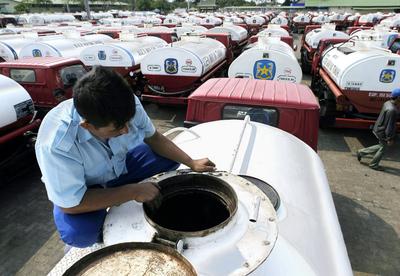President Yudhoyono (SBY) authorised three large fuel price hikes over the course of his two terms, with compensation packages for each to help soften the blow. These were hailed worldwide as courageous and intelligent policy reforms. President Obama asked SBY to talk about them at the G20 in 2009 to inspire other countries to follow suit. But they haven’t worked. The increases have been too few and far between, and there have been price decreases as well.
The enemy of fuel subsidy containment has been not so much a rising international oil price, or even a depreciating rupiah, as simply inflation. After inflation, the subsidised or regulated petrol price is today 22 per cent lower than it was immediately after the large price hikes in 2005. The unsubsidised price is (or would be) 6 per cent lower, and the per-litre subsidy 43 per cent larger. Huge political capital has had to be consumed merely to make up for the erosion over time in the real value of the subsidised price.
How can Indonesia escape from its subsidy trap?
A more radical reform program is needed: instead of one-off increases, a time-bound program with an upfront agreement that the end result would be the elimination of energy subsidies within, say, three or four years. Encouragingly, Jokowi is reported to have committed to something like this in the election campaign. On May 2, he was quoted in the Jakarta Post as saying ‘In four years, the fuel subsidy should be eliminated gradually, step by step, until it’s gone.’
Whether Jokowi will deliver remains to be seen. If he decides to have a go, it would be wise for him to start early and to seek parliamentary support, as difficult as that would be. He could start as early as the 2015 budget, which will be presented to Parliament this month by the outgoing SBY, but approved at the start of the new president’s term.
Stephen Howes and Robin Davies are Director and Associate Director, respectively, at the Development Policy Centre, Crawford School of Public Policy, The Australian National University. This is the second in a series of three posts on their “Survey of Recent Developments” appearing in the latest Bulletin of Indonesian Economic Studies. The first post can be found here.
A version of this article was first published here on New Mandala.
The Indonesia Update will be held at The Australian National University on 19–20 September.

